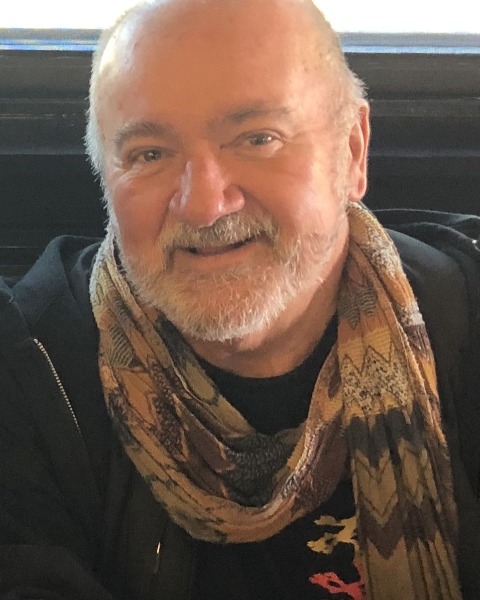Documenting the Timing and Key Factors in Post-Vaccination SARS-CoV-2 Humoral Antibody Development
-

Paul Pepe, MD, MPH, FAEMS,MCCM
Global Coordinator, Metropolitan EMS Medical Directors Alliance
University of Texas Health Sciences, Houston, Texas, USA
Dallas, TexasDisclosure information not submitted.
-
PA
Peter Antevy, MD
Medical Director
City of Coral Springs, Parkland and Davie Fire Rescue Departments
Broward County, Florida, United StatesDisclosure information not submitted.
-
AM
Aileen Marty, MD, FACP
Distinguished University Professor in Infectious DIseases
Florida International University Herbert Wertheim College of Medicine
Miami, Florida, United StatesDisclosure information not submitted.
-
JJ
Jonathan Jui, MD, MPH, FACEP, FAEMS
EMS Medical Director, Multnomah County and Professor of Emergency Medicine
Oregon Health and Sciences University
Portlamd, Oregon, United StatesDisclosure information not submitted.
-
MC
Maricar Cabral, RN, CCRN
Pediatric Emergency Department
Joe DiMaggio Children’s Hospital
Hollywood, Florida, United StatesDisclosure information not submitted.
-
LR
Lauren Rosenberg, n/a
Study Coordinator
Coral Springs Parkland Fire Department
Coral Springs, Florida, United StatesDisclosure information not submitted.
-
RC
Remle Crowe, PhD
National Research Scientist
ESO
Austin, Texas, United StatesDisclosure information not submitted.
-
KS
Kenneth Scheppke, MD, FAEMS
State EMS Medical Director
Florida Department of Health
Tallahassee, Florida, United StatesDisclosure information not submitted.
First Author(s)
Co-Author(s)
Title: Documenting the Timing and Key Factors in Post-Vaccination SARS-CoV2 Humoral Antibody Development
Introduction: The study purpose was to observe the relative timing of humoral (IgM, IgG) antibody (Ab) development following SARS-CoV2 mRNA vaccination and identify associated factors.
Methods: Persons living/working in an assisted living facility (n=77; ages 23-100 yrs) were tested for IgG/IgM just prior to dose 1 of the Pfizer-BioNTech mRNA vaccine (on 01/17/2021) and again on Day 14, 21 (before dose 2), 28 and 42 (n=46 only) -- using point-of-care lateral flow chromatography devices (previously tested/reported in our early research on PCR+/humoral Ab neg persons; Ann Emerg Med 2020;76(4):S83). The assay antigens are a recombinant nucleocapsid protein and spike protein (S1) conjugated with colloid gold. Readings were recorded 15 mins after blood sample droplets were placed into the device.
Results: Prior to dose 1, 5 persons had some detectable Ab (only 1 with known prior illness; none PCR+). Paralleling the original Pfizer vaccine trial, by Day 14, 27 (69%) of 39 persons age < 70 yrs already had new Ab production vs. none in 84% of those >70 yrs (n=38). By Day 21, after dose 2, 100% of those < 60 yrs had detectable Ab except for 2 persons with immunomodulating conditions (ImmMod). However, for each successive decade of age, a progressively smaller percent were Ab+ (e.g., >90 yo, 80% tested Ab negative). On Day 7 post dose 2, 100% of those < 80 yrs were Ab+ (except the 2 with ImmMod)) vs. 89% of 18 Ab+ in their 80s and 78% Ab+ in their 90s. By day 42, only 2 persons remained Ab negative (one with ImmMod and the other a 93 yo). Semi-quantitative results also indicated strong Ab responses for 100% of those < 80 yo on Day 42. Also, as previously reported, the study assay had reproducible results and there was persistent (strong) Ab detection in all persons turning Ab+.
Conclusions: Age and immunomodulating conditions/therapies impact the timing and degree of Ab production following mRNA vaccination. Contrasted with our prior Ab studies of native COVID-19 disease in which the 30% of PCR+ not generating IgG/IgM were < 50 yo and had milder disease, vaccinated younger persons uniformly have rapid onset of strong IgG development, even prior to dose 2. While the very elderly and those Immunocompromised may have undetectable IgG after dose 1, almost everyone, regardless of age, develops strong responses within a week after the 2nd dose with additional increments 21 days after dose 2.
